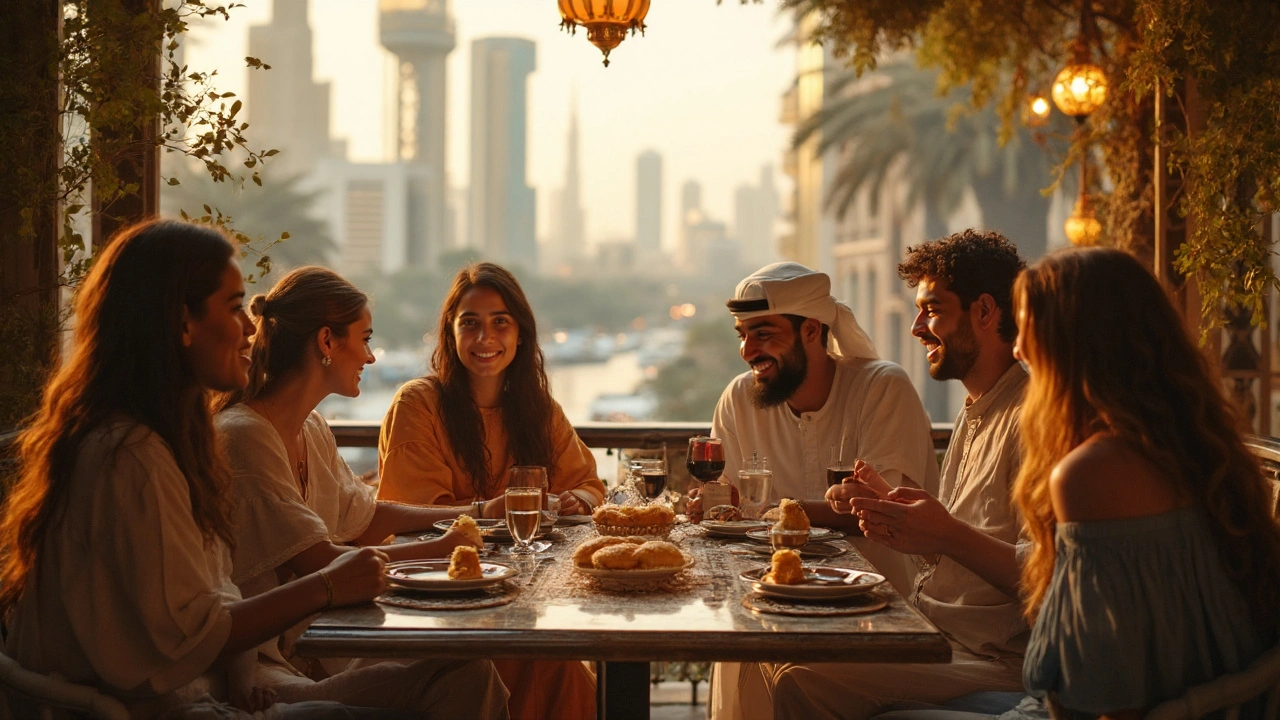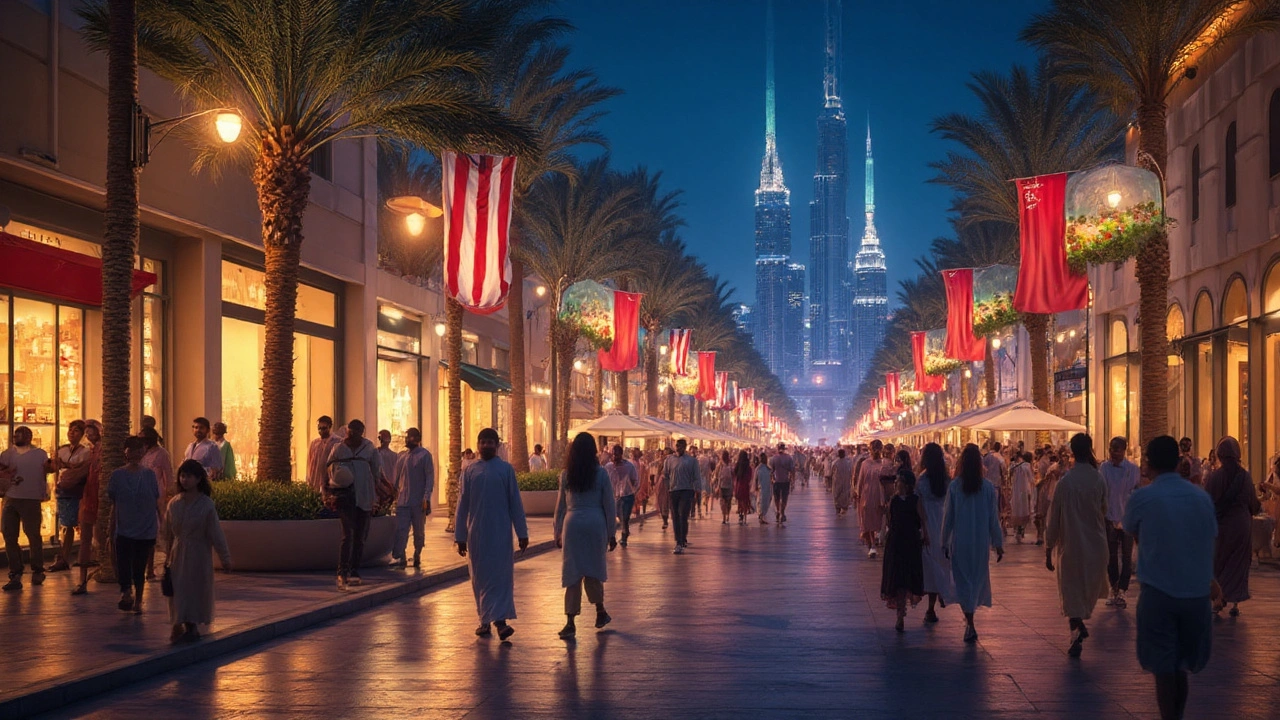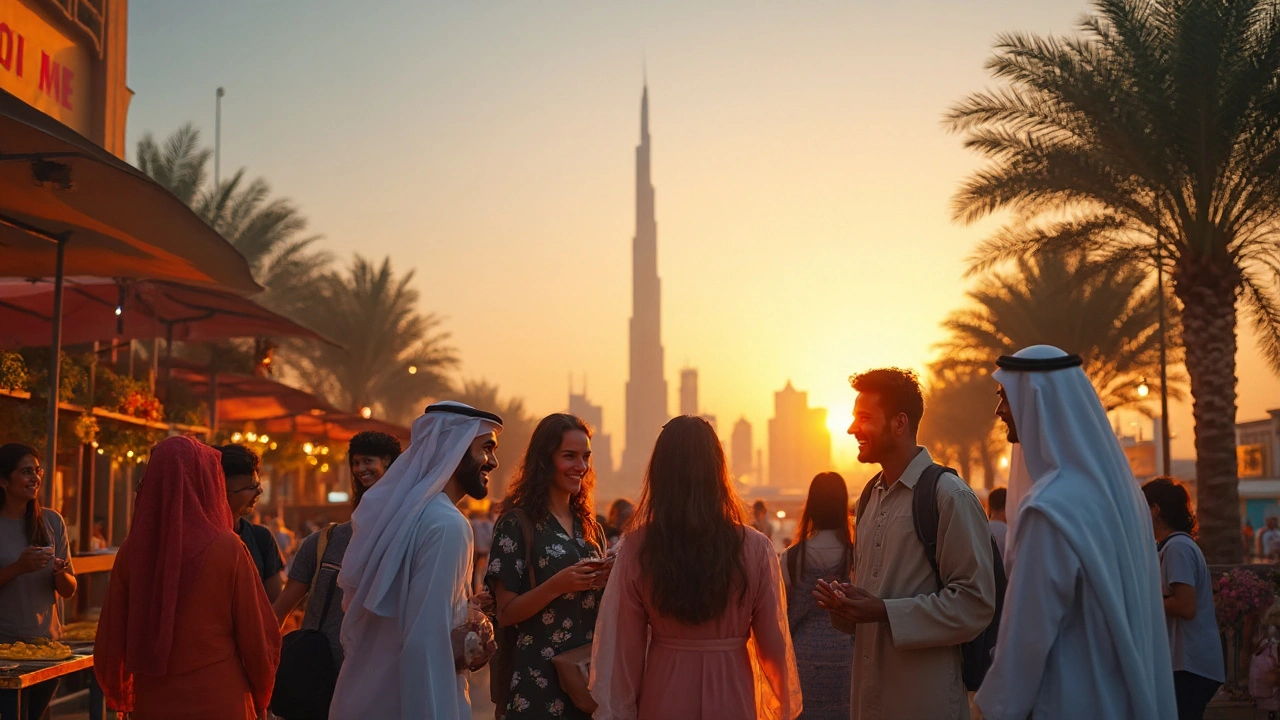There’s a certain image that lingers in a lot of American minds when you mention Dubai: a place dripping in gold, luxury cars, and dizzying skyscrapers poking the clouds. You wonder, “Are Americans really welcome there, or is it just a careful dance of tourist dollars and market moves?” Well, the story runs a lot deeper than surface glitz. Dubai isn’t just open for business—it’s a place where cultures, commerce, and people meet every day. But what does that really mean for someone holding a US passport?
How Dubai Sees American Visitors
For starters, Dubai rolls out the red carpet for visitors from the US—literally and figuratively. American travelers get a 30-day free visa on arrival. No fussy paperwork, no embassy visits, just stroll through the airport and you’re good to go. In 2024, US visitor numbers topped 1 million, making Americans one of the largest tourist groups here. Dubai’s economy feeds on tourism, and Americans spend big. So yes, the welcome is genuine, not just for show.
People say you can be yourself in Dubai, and there’s some truth to that. You won’t have to cover up like in neighboring Saudi Arabia, and English is everywhere—from massive malls to taxi radios. The city is packed with American brands. Shake Shack, Starbucks, Apple Stores, and even an “authentic” Route 66 burger spot with neon signs ship nostalgia, if you start feeling homesick. But it’s not just food or shopping. Dubai hosts “American School of Dubai,” US universities, and a surprising number of American expats (over 40,000 in 2024).
Still, first timers are often surprised that they feel more watched than in Miami or Seattle. Security cameras blanket the city. It’s safe—that’s for sure—but this is a place where you follow the rules. Public displays of affection? Keep it minimal. Swearing in public? That can actually get you fined. The city bills itself as tolerant, but don’t mistake that for American-style free-for-all. Think respect over rebellion and you’ll be just fine.
Dubai–US Relations: Politics, Commerce, and Real Life
Dubai is the glitzy face of the United Arab Emirates (UAE), which has always maintained a special—sometimes complicated—relationship with the US. America’s biggest military base in the Middle East sits in the UAE. Political and trade ties run deep. Both countries exchange billions in goods. Here’s a fun piece of trivia: Emirates, the local airline, operates daily direct flights to New York, Los Angeles, and other big US cities. That steady flow of business blurs the lines between “them” and “us.”
But it’s not just about politicians and CEOs. For most Dubai residents, Americans mean business partners, friends, students, or just people sharing tables in crowded food courts. Yes, you still hear American accents while queuing for coffee or at a hotel pool. And you’ll notice that plenty of Emiratis studied at American colleges, so there’s a weird, pleasant familiarity for many locals.
Here’s a quick look at the top goods traded between the two in 2024:
| US Exports to UAE | UAE Exports to US |
|---|---|
| Aircraft and Parts | Aluminum |
| Machinery | Crude Oil |
| Vehicles | Chemicals |
| Medical Instruments | Jewelry |
| Electronics | Textiles |
Sure, politics can sometimes get messy. The two don’t always agree—especially on issues related to the Middle East. But Dubai’s vibe is business-first, and ordinary Americans won’t notice any coldness. If anything, curiosity and a bit of respect work wonders.

American Life in Dubai: Friends, Food, and Reality
If you’re worried about being an outsider here, relax. You’re more likely to meet fellow Americans baking in the desert sun than get a cold shoulder. US-style neighborhoods, home-grown shops and restaurants, and even American football leagues flourish. There’s a Fourth of July party every year that draws hundreds (if not thousands), with burger stands and fireworks echoing what you’d find back home.
The food scene will spoil you. Fancy a slice of New York-style pizza at 3 a.m.? It’s here. Missing Target? Try “Carrefour,” the French cousin, but honestly, you’ll find aisles that feel familiar. Dubai’s melting pot means you can dig into Tex-Mex, Philly cheesesteak, or Kansas City BBQ within a few blocks. The city hosts American festivals, pop-up stores, and even hip-hop nights that borrow straight from LA vibes. You’ll hear American English more often than you’d expect, and not just in touristy spots—teachers, nurses, and techies from the States make Dubai busy and diverse.
But there are real differences. Calling home isn’t as simple, since apps like WhatsApp calls get geeky workarounds (VPNs help but aren’t technically legal). Tipping is appreciated but not as expected—most restaurants already add a service charge. And if you’re heading to the beach, bikinis are totally fine at hotels, but walking through town in swimwear is a fast way to get noticed in the wrong way. Alcohol? Perfectly legal in hotel bars and clubs, but don’t drink outside those zones. Getting caught tipsy on the street is an actual crime, no joke.
Making friends from all walks of life is easy if you’re open. While Americans fit right in, the “Dubai crowd” mixes dozens of nationalities. So, don’t be shocked if your new best friend is South African, Indian, or British. Locals are open to chats and even friendships if you show genuine interest in their culture. Just stay humble, curious, and kind.
Safety, Customs, and What to Avoid
Let’s talk safety because that’s where Dubai gets legendary. It’s ranked one of the safest cities in the world by the Dubai US relations forum in 2025. Petty crime is almost nonexistent. You can forget your phone in a coffee shop and, odds are, someone will return it. But don’t get cocky—drug crimes and public intoxication are dealt with harshly. No mercy. Leave the cannabis gummies and vapes at home, even if it’s legal in your state. Folks have learned this the hard way at Dubai Airport Customs. If your prescription medicine looks suspicious, have a doctor’s note—otherwise, don’t pack it.
Dress codes are simple: business casual for city malls and nice dinners, beachwear for pools. Cover shoulders and knees if you’re stepping into a mosque or government place. Tattoos aren’t illegal, but racy or offensive ones can stir trouble. Swearing or obscene gestures? Double no. Yes, they watch for it—seriously. LGBTQ+ travelers are quietly tolerated, but open displays attract the wrong kind of attention, especially outside high-end nightlife scenes.
If you’re planning on working here, jobs for Americans focus in finance, education, medicine, and tech. Salaries are often tax-free, but don’t forget that US citizens have to file with the IRS no matter what. Make peace with paperwork. For digital nomads, the “one-year remote work visa” is new and keeps things legal if you want to work from your laptop in a coffee shop.
Here are some practical tips for Americans visiting Dubai:
- Don’t bring e-cigarettes, vapes, or CBD products.
- Alcohol can be bought at hotel bars, not supermarkets.
- Keep PDA to a minimum and stay respectful in public places.
- Cashless payments are everywhere—contactless cards or Apple Pay work fine.
- Friday is the holy day, so expect slower mornings and bigger crowds at malls in the afternoon.
- Download Careem or Uber for easy taxis—public transport works, but taxis are the norm for most Americans.
- Always carry your passport (or a clear photo) for ID. Police are friendly but will check if needed.
- Health insurance isn’t optional; you need it for any visit.

Should Americans Visit or Live in Dubai?
Dubai isn’t a perfect carbon copy of the US, and that’s kind of the point. You’ll get the American creature comforts (think free Wi-Fi, energy drinks, and Amazon deliveries), but you’ll also bump into customs and laws that make you pause. Most visitors from the US feel welcomed, excited, and more than a little wowed by the mix of old-world markets and futuristic towers. If you respect the local culture, blend in a little, and keep an eye on the unwritten rules, you’ll find Dubai more than friendly—it’s downright enchanting for Americans looking for something new. Is it a place where you’ll never hit a cultural snag? No way. But that’s half the fun of travel, isn’t it?
